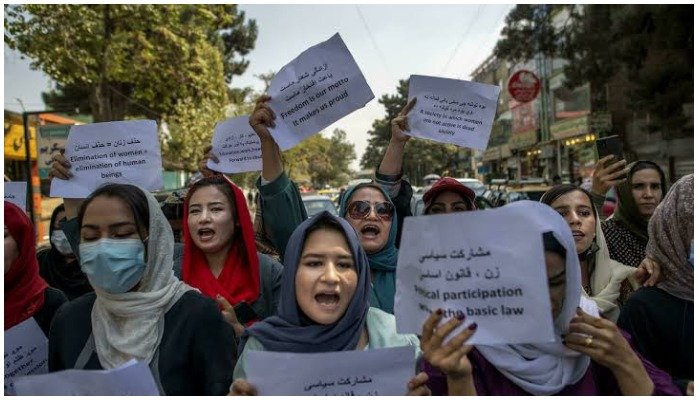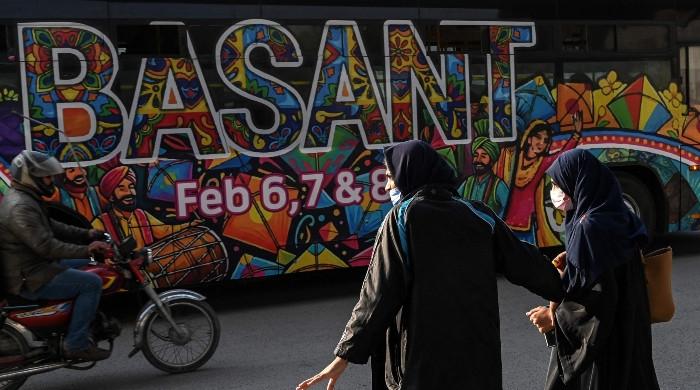TTP and the Afghan Taliban both believe in the repression of women
To world leaders and the international community: you are the last hope, don’t fail the people of Afghanistan
October 02, 2021

January 15, 2009 was one of the saddest days in Malala’s life. That morning she got up but couldn’t get ready to go to school. Two weeks before, the Pakistani Taliban had announced on their FM radio that no girl, old or young, would be allowed to go to school after January 15. Thousands of girls felt devastated after the complete ban on girls' education.
Many cried to mourn the death of their future. Malala was one of them. I was shocked but determined to stand and continue to raise my voice for girls' right to education. For me, submitting to the Taliban would have meant a dreadful compromise on Malala’s dreams and ambitions. For me, submitting to the Taliban would have meant a betrayal of the thousands of girls in Swat. The brave people of Swat spoke up for girls' right to education. The rest of the country supported them and, subsequently, the security forces restored the writ of the government. After three months, the schools were reopened.
The fact is that the Taliban in Pakistan believed in the same ideology as the Afghan Taliban did -- repression of women and girls. The Afghan Taliban forced women to remain invisible and stopped girls from going to school. What the Afghan Taliban did to women and girls in Afghanistan from 1996-2001 was replicated by the Taliban in Swat from 2007 to 2009. Initially, they asked for mandatory veils even for small girls, then segregation of male and female students, and finally a complete ban on girls' education.
This is similar to the Afghan Taliban's excuses today regarding girls going to secondary school. The Afghan Taliban's recent takeover of Kabul was an unimaginable disaster for the whole country and shocking for Afghan women and girls. The fall of Kabul to the Afghan Taliban revived my trauma of when Swat fell to the Pakistani Taliban. The first victims whose thought gripped my heart and soul were the 20 million women and girls -- half of Afghanistan's population.
During the Doha peace process, the Afghan Taliban frequently assured the negotiating parties and their mediators / facilitators that they would respect women’s rights and girls' right to education. But once they took over Kabul on August 15, they changed their narrative on issues such as inclusive government, women’s rights and girls' education. With every passing day, their policies and practices prove that they are the same old Taliban of the 1990s.
Within days they abolished the Ministry of Women's Affairs, stopped almost all women from working and suspended most girls' education. They are disappointing both their friends and their critics. They are trying hard to seek legitimacy and recognition in the eyes of the world but at home they don’t accept the basic rights of half of their citizens. They believe girl students should be taught only by female teachers but they don’t try to understand the simple fact that the country cannot produce female teachers if they don't allow girls to go to high school or college.
In the last 20 years, despite corruption and constant terrorism, Afghan youth had achieved a lot. Nine million Afghan children were enrolled in schools; this included nearly four million girls. Around 200,000 men and more than 100,000 women were studying in universities. Afghanistan produced a world class cricket team, and women's cricket, football teams and girls' robotics teams as well. Afghanistan had transformed.
We could see Afghan women in parliament, in the courts, in the media and almost in every other walk of life. A Taliban regime like it was in the past will be like a nightmare for Afghan women, girls and artists. Journalists, human rights activists, politicians, NGO workers, athletes, artists and musicians have all fled or are trying to flee the country. The world is seeing a tragic mass exodus of the most talented, learned and skilful Afghans.
Will the Afghan Taliban ever reflect on this situation of fear? Will they ask themselves why their own don't want to live under their rule? How will they run the country if the brain drain continues and no educated and skilled human resource is produced because of their draconian laws and restrictions on women’s jobs and girls' education? In my view, depriving a girl of her right to go to school is tantamount to burying her alive. The Afghan Taliban should understand that there are 1.8 billion Muslims and 45 Muslim countries in the world. Most Muslim countries respect women’s rights and girls' education. They should learn from them.
They should also know that this is not the Afghanistan they left in 2001 when they ruled by terror and fear. At the time, one armed Talib could bully and coerce a whole village. But now even with more military powers they can see this unprecedented and fearless resistance of Afghan women and men. Marching in the streets of Kabul, Kandahar and Herat these brave women and men have chanted powerful slogans for their rights that surprised the world: "Women’s rights are human rights"; “equality is our right”.
The Taliban have to listen to them. Silencing them with beating and flogging is not the solution. They have to include women in positions of power and allow all girls to achieve the best of education. This is not just because the UN or the international community demand them to do so. It is because this is the only route to bring lasting peace, prosperity and happiness to the people of Afghanistan. Malala once said, “We cannot all succeed when half of us are held back.” In the context of Afghanistan, that simply means Afghanistan can’t move forward when half of its population is held back.
Afghanistan under the Taliban is at the most crucial period of its history. The Afghan Taliban can either choose to stick to their obsolete ideology and keep Afghanistan isolated and once again as an outcast in the international community -- or they can form an inclusive government with women and all ethnicities participating. Their inclusivity at home will pave the way for Afghanistan to become an honourable member of the global community. They can either lose the social, political and economic gains of the last 20 years or benefit from these gains to build a better, stronger and happier Afghanistan.
The Afghan Taliban have repeatedly claimed that they have achieved freedom from foreign occupation. If that is true, then why does freedom mean subjugation for women and girls? They should listen to Fatima, an Afghan student who recently spoke to Tolo News and said: "As a girl, I feel like I am not a citizen of this country. I am imprisoned at home, literally, I am like a prisoner.” Will they listen to 11-year-old Setaresh who wants to become a doctor and told BBC international correspondent Lyse Doucet, "My message to the Taliban is they should allow us to study, to serve our country.”
And finally to world leaders and the international community: you are the last hope. Your faulty decisions failed the democracy of Afghanistan. Don’t fail the people of Afghanistan. Can you imagine living in a country where women are not allowed to work and girls are not allowed an education? Can you think of a country where music is completely prohibited?
If you can’t imagine it for yourselves, then do not recognise the regime of the Afghan Taliban until they accept all girls' right to education, all women’s right to go to work and all musicians' right to beat their drums and strum their guitars.
The writer is a women's rights and education activist. He tweets @ZiauddinY
Originally published in The News











